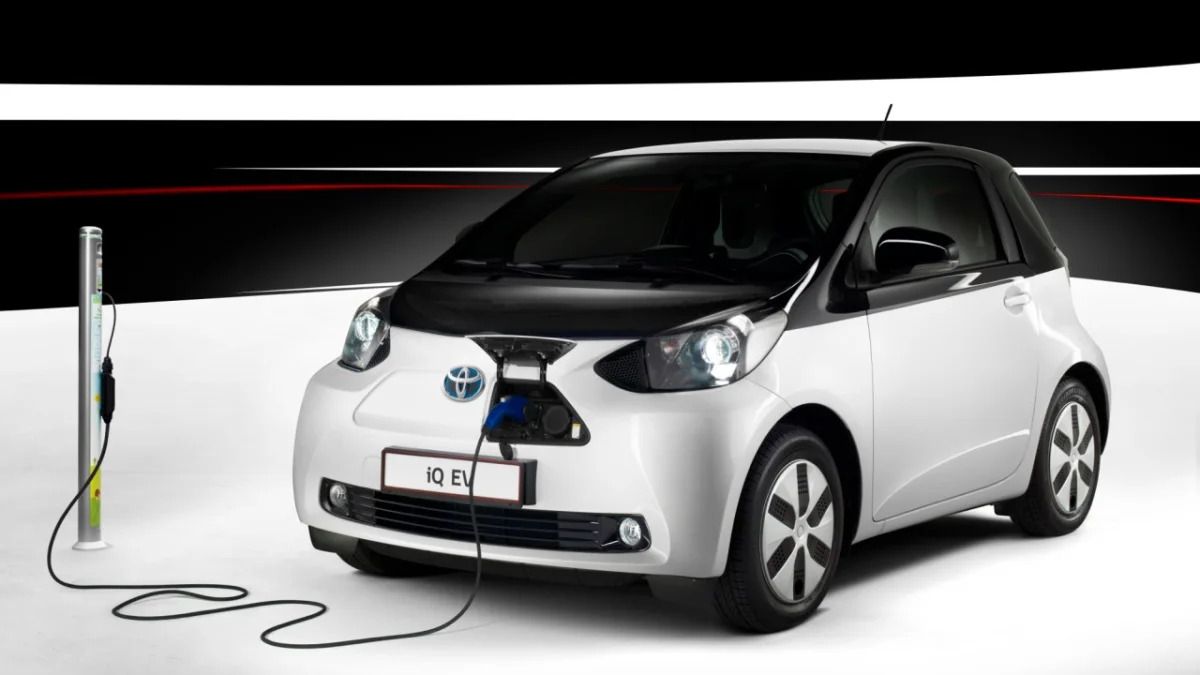Toyota is undoubtedly committed to moving beyond the internal combustion engine for future automobiles. But, while the company embraces hybrids with boosted production, new models and in motorsports, the automaker is more standoffish when it comes to pure electric models. This is especially true as the Mirai hydrogen fuel cell sedan comes to market.
In the mind of Mirai chief engineer Yoshikazu Tanaka, even fast-charging electric vehicles don't have much of a future because of their strain on the power grid. "If you were to charge a car in 12 minutes for a range of 500 km (310 miles), for example, you're probably using up electricity required to power 1,000 houses," he said to Reuters. Tanaka admitted that EVs have a place in the market, but it was for short drives during the day after being charged each night.
As one of the people responsible for bringing the Mirai to the road, it shouldn't be too shocking that Tanaka puts his faith in hydrogen. He feels that H2 is the better choice for long-distance driving because of the available range and speed of refueling. "Of course, there are technological hurdles that need to be cleared to make this commercially viable," he said to Reuters. One of the biggest of those obstacles is building a new refueling infrastructure. But, despite government subsidies, Japan looks set to miss its goal of opening 100 H2 stations by the end of March 2016.
Toyota has thrown a lot of support behind hydrogen but has been accused of overstating some of the fuel's benefits and embellishing the current refueling infrastructure. Still, engineers at the automaker are working to bring the cost of the fuel cell vehicle down to the level of a diesel by 2022.
In the mind of Mirai chief engineer Yoshikazu Tanaka, even fast-charging electric vehicles don't have much of a future because of their strain on the power grid. "If you were to charge a car in 12 minutes for a range of 500 km (310 miles), for example, you're probably using up electricity required to power 1,000 houses," he said to Reuters. Tanaka admitted that EVs have a place in the market, but it was for short drives during the day after being charged each night.
As one of the people responsible for bringing the Mirai to the road, it shouldn't be too shocking that Tanaka puts his faith in hydrogen. He feels that H2 is the better choice for long-distance driving because of the available range and speed of refueling. "Of course, there are technological hurdles that need to be cleared to make this commercially viable," he said to Reuters. One of the biggest of those obstacles is building a new refueling infrastructure. But, despite government subsidies, Japan looks set to miss its goal of opening 100 H2 stations by the end of March 2016.
Toyota has thrown a lot of support behind hydrogen but has been accused of overstating some of the fuel's benefits and embellishing the current refueling infrastructure. Still, engineers at the automaker are working to bring the cost of the fuel cell vehicle down to the level of a diesel by 2022.







Sign in to post
Please sign in to leave a comment.
Continue